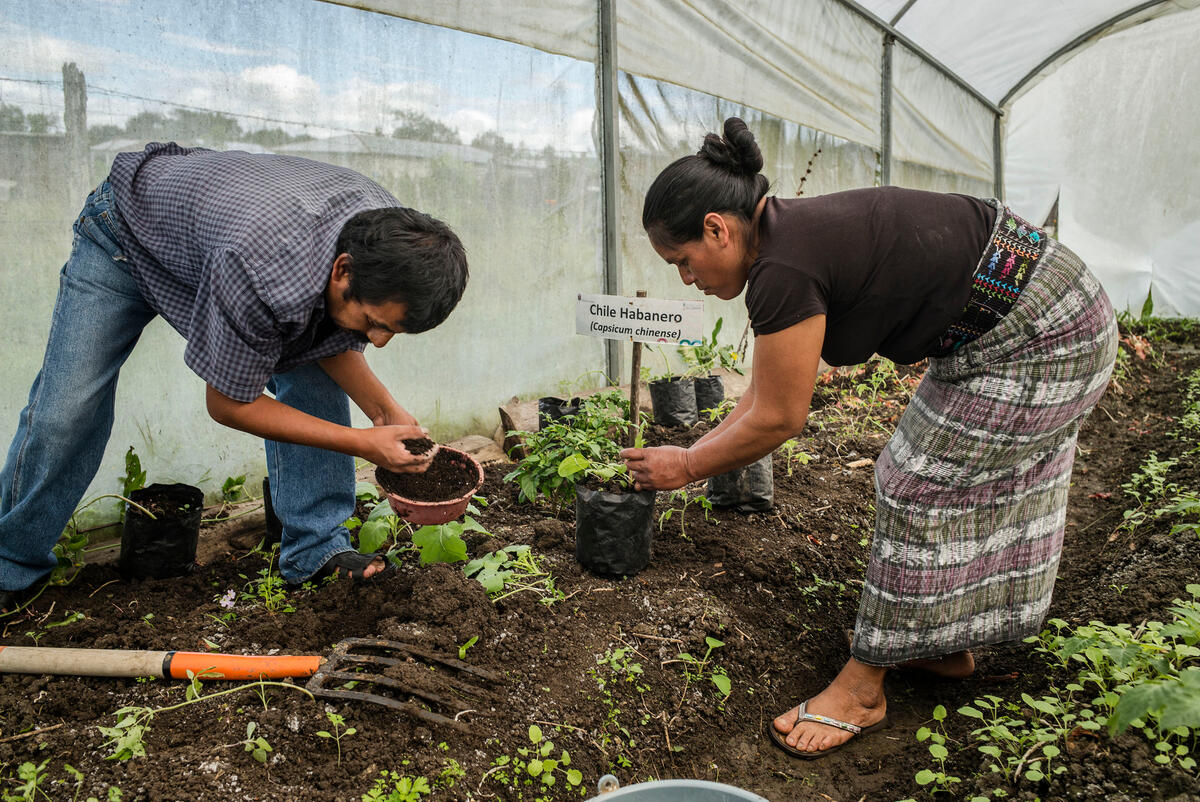Launch of Joint SDG Fund to improve working conditions for wage workers
Joint efforts focus on improving working conditions for wage workers, securing their social and labour rights.

Mexico City, Mexico - The Government of Mexico and the United Nations have launched the Steering Committee for the Joint Programme "Transformation of agrifood systems in Mexico: Towards comprehensive social protection and decent rural employment”.
Funded by the Sustainable Development Goals (SDG) Fund, this Joint Programme aims to enhance the livelihoods of wage workers in agriculture by improving their working conditions and ensuring access to labour and social rights.
Implemented by the Food and Agriculture Organization of the United Nations (FAO) and the International Labour Organization (ILO), with support from the UN Resident Coordinator’s Office, the initiative brings together national partners. These include the Secretariat of Agriculture and Rural Development, the National Institute of Statistics and Geography, the Secretariat of Labor and Social Welfare, the Mexican Social Security Institute, and workers’ and employers’ organizations.
The programme is closely aligned with Mexico´s Comprehensive Strategy to guarantee the constitutional rights of wage workers in agriculture, recognizing their essential contribution to food sovereignty.
During the establishment of the Steering Committee, Lina Pohl, FAO Representative in Mexico, emphasized that the Committee is key to transform agrifood systems in the country. She highlighted that 2.3 million wage workers in agriculture need access to fair and decent working conditions, and that this programme aims to improve their quality of life.
Irvin Rojas, General Coordinator of Information, Intelligence, and Evaluation at the Secretariat of Agriculture and Rural Development, highlighted the importance of the Joint Programme in ensuring access to healthcare, education, and housing.
Jorge Ríos Vadillo, Director General at the Secretariat of Labor and Social Welfare, added that social dialogue will be key to advancing the formalization of employment.
Four priority areas
The Joint Programme will focus on enhancing data collection tools using the National Survey of Occupation and Employment and the Agricultural Census to better understand this population’s needs. It will also assess policies on formalization of agricultural work and social protection, evaluating their impact on wage workers. In addition, the programme will engage medium and large-scale producers to promote improved working conditions and will develop coordinated strategies across institutions.
The Steering Committee will work closely with the public sector, international organizations, employers and workers, and civil society to build a fairer, more equitable, and sustainable agri-food model, in line with the 2030 Agenda for Sustainable Development.
The unsung backbone: wage workers
In Mexico, one in every three jobs is linked to agrifood systems. Among these, wage workers are among the most vulnerable groups. An estimated 90% work informally, earning an average monthly income of USD 160.
The challenges are even more pronounced for women. Many migrate north with their children in search of work in the fields, where they often face precarious conditions and heightened risks. Women account for 13% of wage workers in agriculture, and 23% belong to Indigenous communities.
